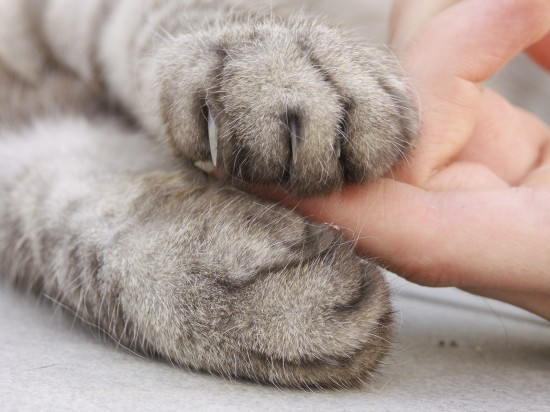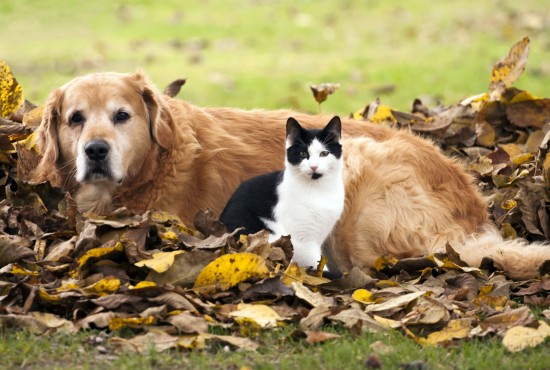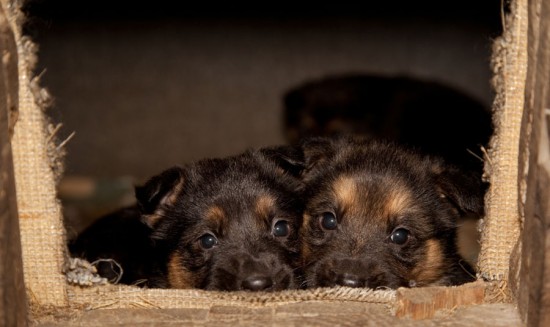
More people today are trying to crate train their puppy once they've learned about the added benefits of crate training puppies. One of the fastest way to housebreak a puppy and prevent unruly behavior while you're away is through crate training. However, unless crate training is done properly, the chances of fixing these behaviors are slim. Here are the top mistakes dog owners make when crate training their puppy. Are you making any of these mistakes?
Associating the Crate to Punishment
The last thing you ever want to do when crate training your puppy is use the crate for discipline. This defeats the whole purpose of crate training. You want your dog to feel safe, secure and happy in the crate. You want your dog to willingly go into the crate when he wants to. Forcing your puppy inside the crate will not help him get over his anxiety. Forcing your puppy inside will only make crate training harder. By yelling at your dog, scolding, shoving your dog inside out of spite will not help your dog's transition into the crate a smooth one (if one at all.)
Remember to slowly introduce the crate to your dog. Your dog is going to feel uneasy at first, do your best to associate good things with his crate. Put treats and toys in his crate and make sure you give him a lot of praise and rewards when he progresses.
Too Much Time in the Crate
Remember, you're dealing with a young animal here. Like children, puppies can only hold their bladder for so long. This means if you work an 8 hour job and your puppy is in his crate all day, be expected to come home to a soiled crate. Generally speaking, for every month your puppy is old, is to how many hours plus one your new puppy can hold his bladder. For example, if your puppy is 2 months old, he can hold his bladder for 3 hours. If your puppy is 5 months old, he can only hold his bladder for 6 hours.
Expecting your dog to not soil his crate is unrealistic and unfair. Dogs instinctively hate to soil their sleeping areas, so your dog will do his best to hold his bladder and bowels, the least you can do is come home on your lunch break and take him out for a walk as well as feed him and give him water. With that said, avoid putting food and water in your dog's crate to prevent accidents.
You may think it's cruel but not coming home every few hours when your puppy needs you is even crueler. You need to take your dog outside frequently throughout the night if you don't want him to urinate in his crate. Also, the crate is only used whenever you're not home or at night to sleep. Down the road, you will eventually keep his crate open and he can come and go as he pleases.
Night Time Crating
To prevent any night time accidents (especially in your bed) avoid allowing your puppy sleep with you in your bed. At night,put your dog in his crate and cover up his crate with a blanket. The blanket will help keep your dog from seeing you and keep him calm, pretty similar to "out of sight, out of mind."
Use an old blanket in case your puppy chews or pulls apart the blanket from the inside of his crate. If your puppy is whining at night and it's driving you nuts, your best bet would be to put your dog and his crate in another room. Don't forget to take your dog out a couple times at night and immediately come morning.
These are the biggest mistakes people make when crate training their dog. Make sure you avoid any of these mistakes to get the best out of crate training.
 How To Give Your Cat A Monthly Health Check
How To Give Your
How To Give Your Cat A Monthly Health Check
How To Give Your
 Different Methods Of Rabbit Communication
Different Methods
Different Methods Of Rabbit Communication
Different Methods
 Vomiting, Regurgitation And Expectoration In Cats And Dogs - The Difference
Vomiting, Regurgi
Vomiting, Regurgitation And Expectoration In Cats And Dogs - The Difference
Vomiting, Regurgi
 Common Illnesses In Macaws
Common Illnesses
Common Illnesses In Macaws
Common Illnesses
 Puppy Farming - The Reality
Puppy Farming - T
Puppy Farming - The Reality
Puppy Farming - T
Copyright © 2005-2016 Pet Information All Rights Reserved
Contact us: www162date@outlook.com